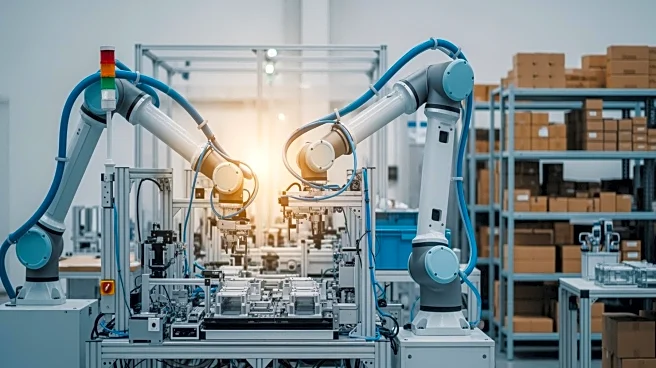What's Happening?
John Furner, CEO of Walmart U.S., emphasized the company's commitment to U.S. manufacturing during CNBC's Invest in America Forum. Walmart is increasing investments in domestic production, with nearly
two-thirds of its products made or assembled in the U.S. The company is expanding operations, including a new beef processing facility in Kansas, expected to create over 600 jobs. Furner highlighted partnerships aimed at reviving domestic production of essential products, while acknowledging the continued importance of global sourcing.
Why It's Important?
Walmart's focus on U.S. manufacturing reflects broader trends in corporate America, where domestic production is increasingly prioritized for its economic and strategic benefits. This shift supports job creation and supply chain resilience, potentially influencing trade policies and economic strategies. As one of the largest retailers, Walmart's actions could encourage other companies to invest in U.S. manufacturing, impacting employment and economic growth. The move also aligns with consumer preferences for locally sourced products, enhancing Walmart's market position.
What's Next?
Walmart's ongoing investments in U.S. manufacturing may lead to further expansion of domestic facilities and partnerships. The company is likely to continue balancing global sourcing with local production, adapting to trade policy changes and economic conditions. As tariffs and interest rates evolve, Walmart's strategies may shift to maintain competitive pricing and supply chain efficiency. The company's actions could influence industry standards and government policies related to manufacturing and trade.
Beyond the Headlines
The revival of U.S. manufacturing raises questions about sustainability and environmental impact, as companies seek to balance economic growth with ecological responsibility. Walmart's initiatives may prompt discussions on ethical sourcing and production practices, influencing industry norms and consumer expectations. The focus on domestic production also highlights cultural shifts towards valuing local economies and community development, potentially reshaping consumer behavior and corporate strategies.









